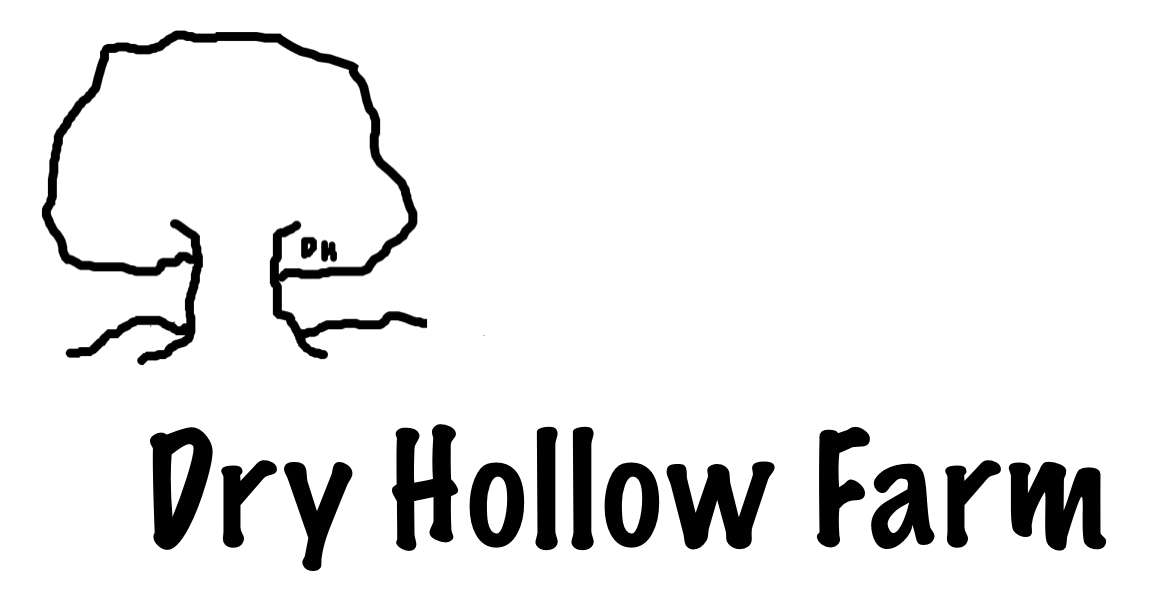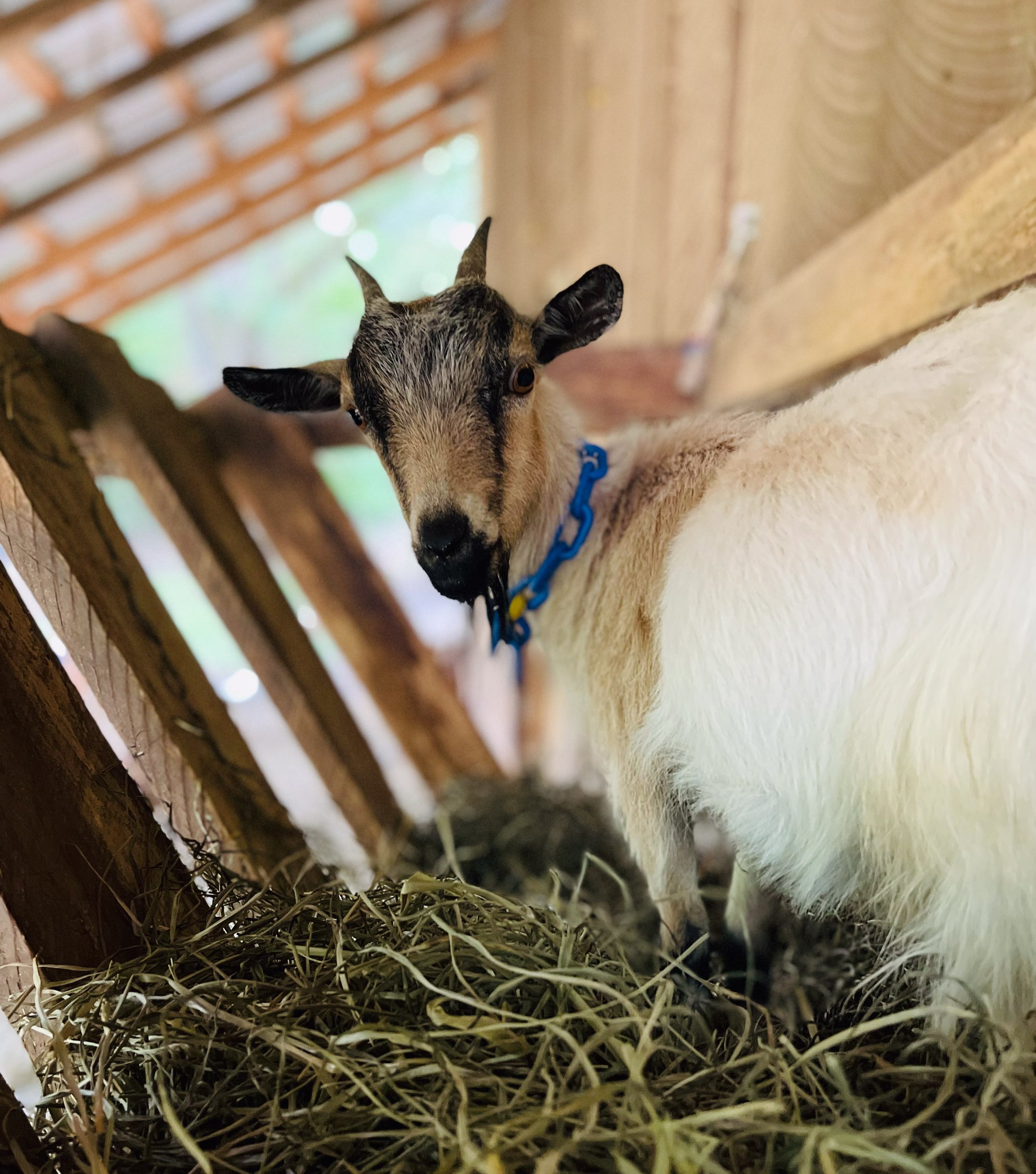Spring Barn Cleaning
Although our dairy goats have several acres of pasture and woods to roam, they spend much of the cold, damp winter months hanging out at the hay feeder attached to the barn under the back shed roof. In the daylight hours they stand placidly munching mouthfuls of hay; every night they sleep in piles in the two open barn stalls provided.
By mid-spring as the pastures green and temperatures rise, it is time for a thorough barn cleaning.
We have a low-tech approach to this task: pitchfork, rake, and wheel barrow.
There is also constant company as our goats curiously wonder what we are doing to their “happy place” …
We have two destinations for the dirty hay:
#1: The compost bin
#2: Our herb garden beds.
Our secret weapon for working the manure hay is our flock of free-range chickens. Whether we throw the hay in a compost bin or more carefully spread it in planting beds, the chickens quickly descend, and with powerful clawed feet, rake through the debris for tasty bugs or hidden seeds.
One caution when throwing used hay on garden beds
Late spring and summer may find the beds filled with sprouted grass seeds. Our chickens minimalize these sprouts, but some will slip through. The way to avoid sprouting hay seeds is to process the barn waste through the hot compost process first, then spread. Since we usually layer additional mulch from leaves and pine needles (often adding newspapers or brown paper sheets as a weed barrier) once plants are in the ground, grass sprouts are not much of a problem.
In western Tennessee, summer heat and humidity provide the perfect atmosphere for a variety of nuisance, dirt-hatching pests. After we strip the barn area of the dirty hay, we lay down a cover of powdered lime.
We will repeat this process occasionally throughout the summer months.
Finally, we provide a little more fresh hay for nighttime bedding. Our goats spend most of their summer days roaming pastures and woods sampling the smorgasbord of plant offerings. Barn time is for cud-chewing and sleeping.
We must admit that the seasonal barn-cleaning task is not one of our favorites. However, it is necessary and valuable as one of the many interrelated tasks that allows us to make the most of the resources produced organically and sustainably on our farm.
Dr. Kathryn Bush owns and operates Dry Hollow Farm, a working goat farm in Huntingdon, Tennessee. Together with her husband, Russell, she creates skincare products from their fresh goat milk, grows organic herbs, welcomes visitors to their two cabins on the farm (available for stays through Airbnb), keeps the farm’s on-site soap shop stocked with their handcrafted products, and enjoys working the farm in company with their Great Pyrenees dogs (who work hard guarding the animals). Check out their natural products featuring farm-grown ingredients here, and sign up for the Dry Hollow Farm newsletter to stay in touch and be the first to hear about farm news, events, and new products.











